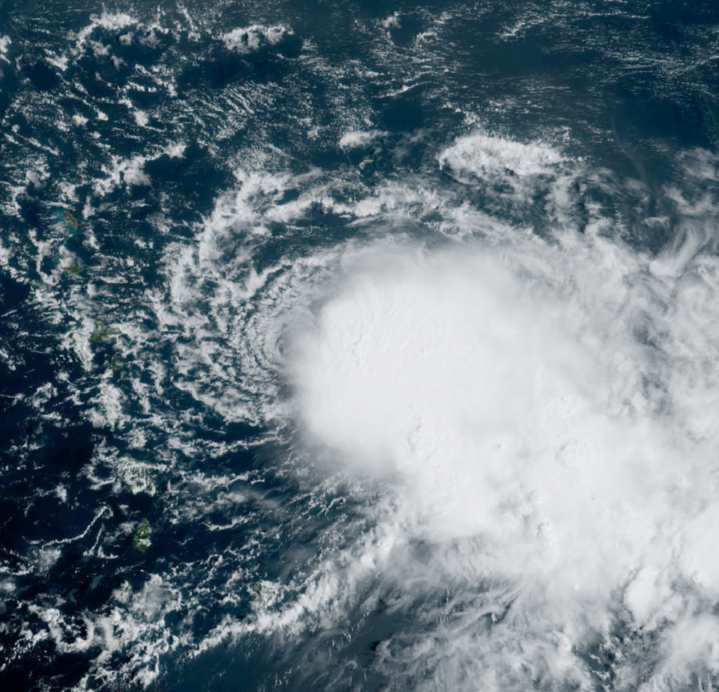
On Sunday, the week of the fifth anniversary of Hurricane Maria–the category four storm that devastated Puerto Rico and killed over 3,000 people–Hurricane Fiona made landfall on the United States territory, undoing much of the build-back progress gained since Hurricane Maria.
The category one hurricane poured more than 30 inches of rain onto the hardest-hit areas with wind gusts reaching 90 MPH. The combined effects took its toll on the island. Puerto Rico’s power grid went dark and torrential rain triggered flash floods, forcing rescue missions of over 1,000 people stranded amidst the flooding.
“It’s frustrating because not only does Puerto Rico take destruction, but the education system and all the other systems that help Puerto Rico to grow and actually need attention from Puerto Rican people just stopped working,” said Ricardo Reina, a sophomore studying biomedical engineering. “That leaves people without going to school, that leaves people without homes, food and overall it’s a major side effect from the hurricane in the long term.”
Although only a category one storm, Fiona has caused mass damage to highways, the water system and hundreds of homes. Total damage is estimated to culminate in the billions of US dollars, according to Puerto Rican Governor Pedro Pierluisi.
“The thing that made it very impactful in Puerto Rico is that it was very close to the island and it moved very slowly. Those two things combined let it dump a lot of rain in a short amount of time,” RSMAS senior research associate and Tropical Atlantic Blog owner Brian McNoldy said. “They are very prone to flash flooding and mudslides because it is not flat. There are mountains, so pretty quickly the heavy rainfall becomes a big issue.”
Reina, a San Juan native, has many family members who live on the island that have been unable to communicate with him. As of Monday, Sep. 20, he had only received one text from his family on the island; a message from his mother. After surviving Hurricane Maria together though, his family will be okay.
Reina said he is more concerned by the power outage in Puerto Rico, recalling the implications of the power outage in the wake of Hurricane Maria. Post Maria, the island experienced a power crisis that left hospitals nonfunctional and cost over $13 billion to fix.
“There are places in Puerto Rico, very few now, that have not recovered from Maria because of the electrical team and response team,” he said. “There are places in Puerto Rico that will never have power.”
There is hope though for an improved response to Fiona through Puerto Rico’s new partnership with LUMA Energy. LUMA has stated they have already returned power to 100,000 people in northern Puerto Rico as of late Monday.
The company has struggled to gain its footing since its implementation in 2020 facing roadblocks like the arrest of their Chief Executive. LUMA has also received some criticism for failing to keep the energy flow consistent this summer as a series of blackouts hit Puerto Rico.
Reina criticizes the government for yet again not being prepared and lacking the infrastructure to withstand a hurricane, but understands that there is always an air of inevitability and uncertainty that comes with the peak of hurricane season.
“No matter how prepared you are, there are so many people in Puerto Rico that do not have the right tools or right materials to protect themselves,” he said. “I think Puerto Rico could have done better in preparing for this hurricane but the hurricane got stronger in the end so there was no way to predict that.”
Following Puerto Rico, Fiona tracked east to the Dominican Republic -where mudslides have been reported- continuing its slow progression up the Atlantic Ocean.
“Currently my parents are in the DR and knowing that makes me feel a bit worried that they may potentially be at risk with not as many resources as the states in America to protect them,” sophomore Mikael Figueroa said.






